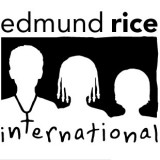
India Oral Statement at HRC, June 2019
Item 3: ID with Special Rapporteur on the Right to Education
Mr. President.
Edmund Rice International, along with the children of India’s NINEISMINE campaign and PRATYeK commends the initiative taken by the Government of India for the Universalization of Education for all children.
- The draft policy recommends the extending of the Right to Education Act to include all children between the ages of three and 18 years. This extension of the act is welcome and aligns with the Sustainable Development Goals.[1]
- Three years after the implementation of the Right to Education Act, the Central Government passed a resolution to reserve 25 per cent of enrolments for economically weaker groups in unaided private schools. However, this mandate was met with strong resistance from groups of private schools and the Draft National Eduction policy aims to dilute this resolution.
- The draft also carries suggestions on promoting public-private partnerships in the printing of textbooks. This creates the risk of increasing the cost of books compared to those provided by government education bodies, which will hinder the affordability of books thus creating a knowledge gap.
- The new draft also suggests the consolidation of public schools and establishment of school complexes. This would lead to a mushrooming of private schools further preventing access of children to neighbourhood schools, thereby contradicting the Right to Education provisions and its spirit.
We call on the Indian Government to strengthen the existing norms of the Act and the public school system, rather than diluting structures and promoting the privatisation of education.
Thank you.
[1]Rethinking education: The draft NEP 2016 | PRSIndia. Retrieved June 22, 2019, from https://www.prsindia.org/theprsblog/rethinking-education-draft-nep-2016